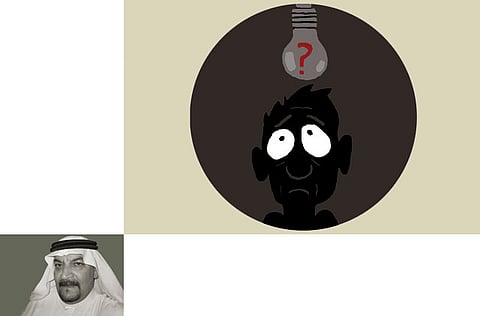Why turn off the lights in stores?
The Saudi Ministry of Trade and Commerce needs to look into this disturbing trend among commercial outlets

Chances are that visitors to Saudi Arabia will experience situations often not observed anywhere else. Perhaps one such situation is the dimming or turning off the lights in commercial establishments, restaurants and shops just prior to the announcement of the prayer call.
There is no question that respect for prayers is evident everywhere. And those who chose to offer them at their place of work should be allowed to do so. But consider this scenario. You are in a department store or a restaurant, when suddenly you find yourself amid lights being dimmed and shutters being drawn. Left to grope for an exit and safety in the near dark, you notice you are not alone. Other patrons are fumbling towards the lit exterior, some with children or bags of purchases.
If you are on the second or third floor of a commercial establishment, you quickly find out that the escalators have been turned off. To navigate yourself in the dark, you may wish you were slightly more athletic. Sales attendants walk past you and whisper in menacing tones, Salaat, Salaat — meaning that it is time for prayers or the unspoken term: Get Out! But the first call for prayers hasn't even begun! The Ministry of Trade and Commerce should really look into this disturbing trend among commercial outlets that cater to a large numbers of customers. There is no uniform standard when it comes to closing up at these times. Nor do consumers know whether they are to be locked in or shooed out. Some store and restaurant managers are quick to point out that they have to vacate the premises and shutter up their businesses at these times.
The ironic thing is that people who are rudely booted out of these places end up loitering on the sidewalks in front of the stores impatiently waiting for them to reopen. Even the sales attendants congregate in groups for their break of coffee and cigarettes. And all this before prayers have started.
What is Islamic about leaving people in the dark amidst strangers, with families, children, the young and the old all left to fend for themselves? Is there anything spiritual in such an act, or is it that sales attendants find it a good excuse for longer breaks; notwithstanding the inconvenience it causes their patrons?
It's bad enough in Jeddah that one can hardly get any shopping done in the mornings. Shops open up at 10 or 11 am, only to close at noon for prayers. They reopen at 1pm and close up again around 1:30 in the afternoon.
In the evenings, the cycle starts again when they reopen at 5pm, and close at sunset an hour later. Once re-opened, they stay open for about an hour and a quarter before customers are shooed out again and the lights are dimmed. This cycle of opening and closing up stores at irregular hours is subtly leading us to become a nation of night owls. Attendants of such establishments are abusing the normal times and periods for prayers without accountability.
Busy day
Store attendants blame the Commission for the promotion of good and the prevention of evil for taking such measures, as they recount colleagues being dragged off forcibly by Commission members and jailed for failing to close the store in a timely manner. They claim that they have been threatened if they do not follow such practices. That does not bode well during a business day for retail operations which normally cease all sales during afternoon hours between 1:30 pm and 5:00pm. The shopping habits of most people thus are formed, who prefer shopping when all prayers for the day are finally over, which is usually at about 8:30 pm. That provides an uninterrupted time for a couple of hours without the hassle and bother of being strung out in the dark or thrust out into unaccommodating sidewalks.
Some women prefer the ‘one-stop' shopping mode, by which they take on one task in the morning, one in the early evening and one trip at night. And when they are done, the family tends to go out for late dinners, children in tow if they are not fortunate enough to have someone at home looking after the little ones. The children are tired, the men have had a long day, and hardly any shopping has been done.
To observe school children staying up into the wee hours of the night because of the over zealousness of some staff trying to stretch their breaks or the veiled threat of the Commission's wrath is very annoying. But that still does not answer the question. Why turn off the lights?
Tariq A. Al Maeena is a Saudi socio-political commentator. He lives in Jeddah, Saudi Arabia.


